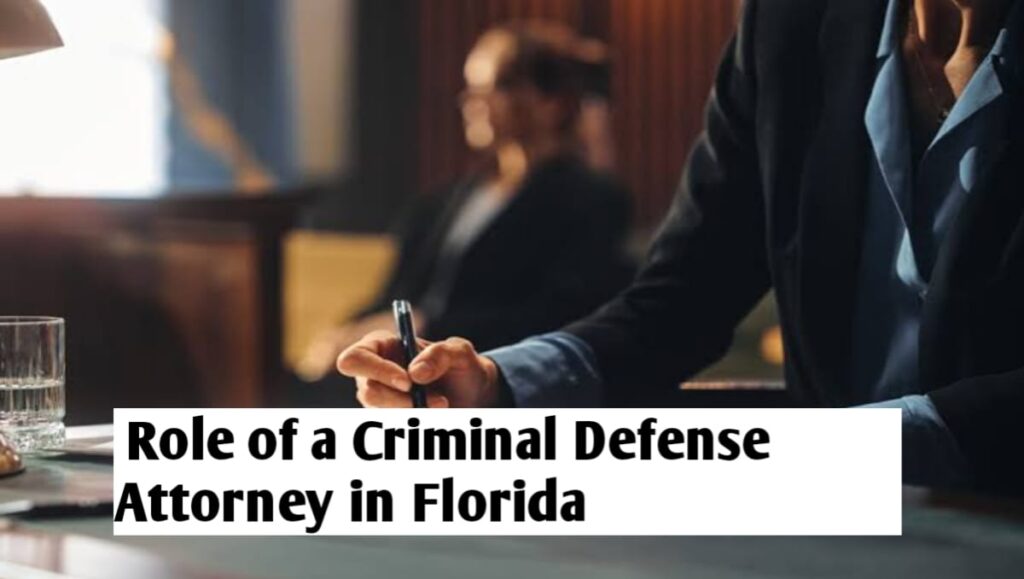The Role of a Criminal Defense Attorney in Florida
A criminal defense attorney plays a crucial role in the criminal justice system, especially in Florida, where the legal landscape is complex and the consequences of criminal charges can be severe. If you are facing criminal charges, whether for a misdemeanor or a felony, a criminal defense lawyer can make all the difference in the outcome of your case. Here’s a look at the key responsibilities and roles of a criminal defense attorney in Florida.
1. Protecting the Defendant’s Rights
The primary role of a criminal defense attorney is to ensure that the defendant’s constitutional rights are protected throughout the criminal process. This includes rights guaranteed by the U.S. Constitution, such as the right to remain silent (Miranda rights), the right to a fair trial, and the right to be free from unreasonable searches and seizures. A defense attorney will scrutinize law enforcement conduct during the arrest and investigation to ensure that no constitutional violations occurred, such as illegal searches, improper questioning, or coercive tactics.
By safeguarding these rights, the attorney helps prevent wrongful convictions, illegal evidence, or unfair treatment within the criminal justice system. If a defendant’s rights are violated at any point, the attorney may file motions to suppress evidence, seek a dismissal, or request the exclusion of illegally obtained evidence from trial.
2. Case Evaluation and Legal Counsel
One of the first tasks of a criminal defense attorney is to evaluate the strength of the prosecution’s case against the defendant. After reviewing the evidence, witness testimony, and police reports, the attorney will provide the defendant with an honest assessment of their legal position. If the evidence against the defendant is strong, the attorney may discuss the possibility of a plea bargain or negotiate with the prosecutor for a reduced sentence.
Defense attorneys in Florida are skilled at identifying weaknesses in the prosecution’s case. For example, they may uncover issues such as insufficient evidence, unreliable witnesses, or flawed investigations. A strong attorney will use their knowledge of Florida criminal law to assess the case and provide clear advice on the best course of action, whether that’s pursuing a trial or seeking an alternative resolution.
3. Developing Defense Strategies
A criminal defense attorney develops and implements a defense strategy tailored to the specific facts of the case. Based on their assessment, they will choose the best possible defense, such as self-defense, an alibi, or challenging the legality of the search or arrest. In some cases, they may also challenge the intent or mental state of the defendant (mens rea) or argue that the prosecution cannot meet its burden of proof beyond a reasonable doubt.
In Florida, criminal defense attorneys must be well-versed in local laws and the practices of local courts. Given that Florida’s criminal justice system has particular nuances, such as mandatory sentencing laws for certain crimes (e.g., drug offenses or DUI), a skilled defense attorney can strategize based on the specific charges and local court procedures.
4. Negotiating Plea Deals
In many cases, a defendant may choose to enter into a plea bargain rather than going to trial. A plea bargain involves negotiating with the prosecutor to agree on a lesser charge or reduced sentence in exchange for a guilty plea. In Florida, plea bargaining is common, as it helps alleviate the burden on the court system and provides defendants with an opportunity to mitigate the potential consequences of a conviction.
A criminal defense attorney plays a central role in negotiating plea deals. They use their understanding of the charges, sentencing guidelines, and the prosecutor’s case to secure the best possible deal for their client. An experienced defense lawyer will also explain the potential consequences of accepting a plea deal versus going to trial, ensuring that the defendant is making an informed decision.
5. Trial Representation
If a case goes to trial, the defense attorney is responsible for representing the defendant in court. This involves presenting a compelling defense, cross-examining witnesses, and challenging the prosecution’s evidence. In Florida, criminal trials are often complex, requiring defense attorneys to present clear arguments and legal strategies that resonate with the judge and jury.
The defense attorney is tasked with establishing reasonable doubt in the minds of the jury. They may do this by presenting their own witnesses, providing expert testimony, or questioning the validity of the evidence presented by the prosecution. The attorney’s ability to effectively communicate and argue the case can significantly influence the trial’s outcome.
6. Sentencing and Post-Conviction Assistance
If a defendant is convicted, the criminal defense attorney can assist in the sentencing phase. Florida law has specific sentencing guidelines that judges must consider, but a defense attorney may present mitigating factors (e.g., lack of prior criminal history, remorse, or personal circumstances) that could result in a more lenient sentence. In some cases, the attorney may advocate for alternatives to incarceration, such as probation, diversion programs, or treatment.
Additionally, if a defendant is sentenced to prison, a criminal defense attorney may help file an appeal or seek post-conviction relief. This could involve challenging a conviction on legal grounds, such as an unfair trial, ineffective counsel, or new evidence that could exonerate the defendant.
Conclusion
The role of a criminal defense attorney in Florida is multifaceted, encompassing the protection of constitutional rights, providing legal counsel, developing defense strategies, negotiating plea deals, and representing defendants in trial and sentencing. A skilled attorney can have a significant impact on the outcome of a criminal case, whether it’s securing an acquittal, reducing charges, or mitigating a sentence. For anyone facing criminal charges, securing an experienced criminal defense attorney is vital to ensuring a fair and just legal process.



